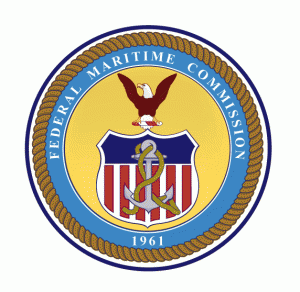FMC outlines steps to monitor congestion surcharges
FMC Commissioner Khouri said the agency is making sure ocean carriers properly implement any surcharges for cargo at West Coast ports
Excerpt from American Shipper | By: Eric Kulisch | December 11, 2014
The decision by transpacific ocean carriers to postpone congestion surcharges until 2015 does not mean the legal issues associated with how, or when, they are applied have been completely resolved, Michael Khouri, a member of the Federal Maritime Commission, said Monday.
He outlined several steps the FMC is taking to make sure the process is transparent and fair, including the creation of a page on the agency’s website to serve as a clearinghouse for all carrier surcharge announcements and associated tariffs so they can be viewed in one place.
Last month, container lines said they would immediately begin assessing surcharges of $1,000 per FEU as compensation for unexpected vessel and equipment costs related to severe congestion at West Coast ports. The move raised howls from importers and exporters, who argue that the timing was unfair and there was no clear triggering event. The FMC has questioned the ability of carriers to impose surcharges on cargo already on the water.
In response to the complaints, some carriers retracted their surcharge announcements and then reissued them. The on-again, off-again nature of the fees has created great confusion among cargo owners.
 Most carriers last spring included congestion-surcharge language in the tariff portion of their service contracts to protect themselves in case labor talks scheduled for the summer on a dockworkers contract led to port disruptions or shutdowns. The International Longshore and Warehouse Union and Pacific Maritime Association have yet to reach agreement on a new multi-year contract.
Most carriers last spring included congestion-surcharge language in the tariff portion of their service contracts to protect themselves in case labor talks scheduled for the summer on a dockworkers contract led to port disruptions or shutdowns. The International Longshore and Warehouse Union and Pacific Maritime Association have yet to reach agreement on a new multi-year contract.
The FMC is still closely monitoring the situation to determine if shippers receive adequate advance notice from carriers so they can adjust their commercial arrangements with customers as needed, the commissioner said in a presentation during a port productivity conference organized in Newark, N.J., by the Journal of Commerce. Shippers say they usually have to eat the fee because they can’t ask customers who have already paid for a shipment to pay more after an order or contract has been finalized.
Also under scrutiny is the question of whether there has been defined, precipitating event to justify the surcharges. Port congestion in Southern California has been steadily worsening for more than a year because of inadequate infrastructure and the inability of marine terminals to deal with high cargo volumes. Delays have increased in recent weeks after workers represented by the ILWU began slowing down work or not making themselves available for assignments.
Congestion has been building over a long period and was not initiated by any major labor action, so the justification for the surcharges has raised many questions. Khouri said each surcharge must be analyzed independently and the one-stop shop on the FMC website will help in that regard.
“It’s conditioned on what each carrier files,” Khouri said, adding that the tariff language has to be clear and definite.
When carriers sought to impose bunker fuel surcharges more than a year ago they appropriately based the trigger on a predetermined market index of fuel prices, he said.
In addition to creating the surcharge information page, the FMC comparing carrier announcements and tariff language to make sure they are consistent. The agency will also be reaching out to ocean carriers and shippers to educate them about the requirements of the cargo tender rules, and the need for certainty and clarity on surcharge triggers, Khouri said.
The FMC, he added, has also asked the Transpacific Stabilization Agreement to call into session its shipper advisory board to facilitate communication between carriers and shippers so they can find a commercial resolution of the issue.
